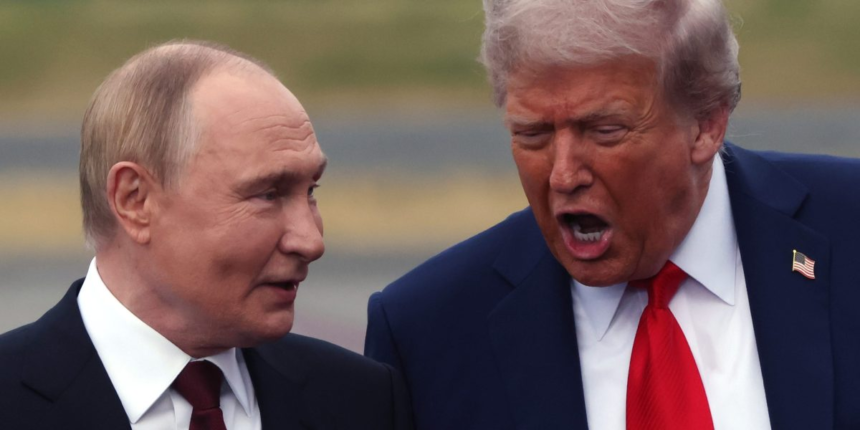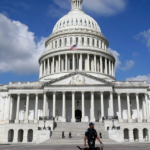The U.S. holds immense leverage over Russia’s economy and ability to continue waging war on Ukraine, but President Donald Trump has backed off from earlier warnings that lack of progress on a ceasefire would result in harsh penalties for Moscow.
When asked why he didn’t follow through, Trump said he would hold off on any new penalties and suggested the threat remains on the table as diplomacy plays out.
Trump had previously warned Russia’s oil sector could face secondary sanctions. Oil and gas generate the bulk of the Kremlin’s revenue, and the U.S. could exploit this critical vulnerability.
In particular, cutting off the “shadow fleet” of tankers that deliver Russia’s oil under the radar would send the war economy into a “deep financial crisis,” according to Robin Brooks, a senior fellow at the Brookings Institution and former chief economist at the Institute of International Finance.
But there are 359 more ships that have already been sanctioned by the European Union or United Kingdom, but haven’t been targeted yet by the U.S.
“Sanctioning these ships would be a hammer blow to the Russian war machine,” Brooks wrote. “There would undoubtedly be a sharp fall in the Urals oil price, reducing the flow of hard currency to the Russian state, and the Ruble would most likely depreciate significantly.”
Meanwhile, foreign policy expects have called the Alaska meeting a success for Putin as he was able to avoid severe consequences from Trump while also buying time for his military to make more battlefield gains in Ukraine.
But Melinda Haring, a nonresident senior fellow at the Atlantic Council’s Eurasia Center, also noted that Trump has significant leverage over Russia.
The National Wealth Fund, a key source of reserves, has dwindled from $135 billion in January 2022 to just $35 billion this past May and is expected to run out later this year.









